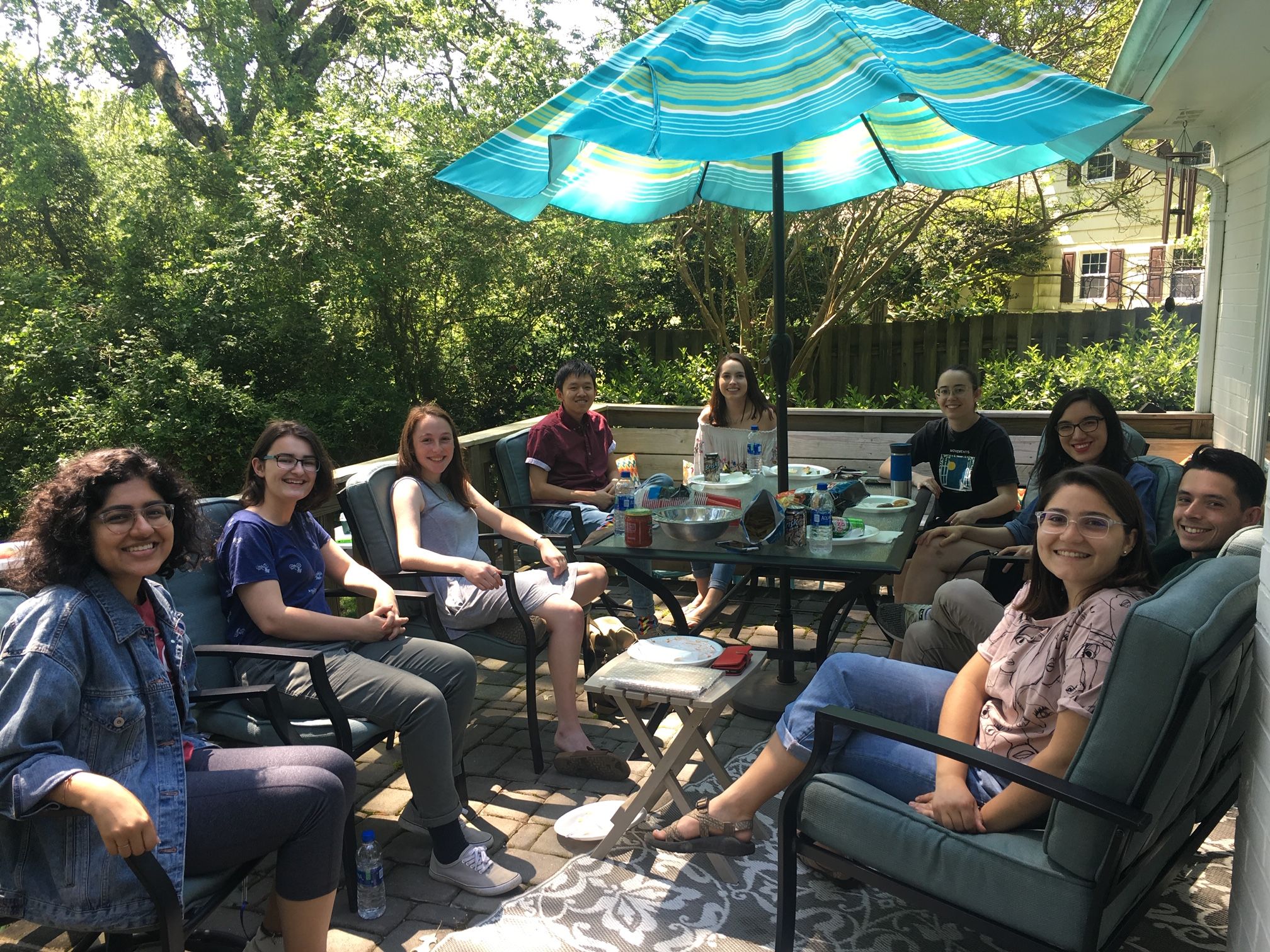Nothing I learned as a tutor-in-training prepared me for just how ecstatic consulting with a tutor would make me feel. When I was a first-time consultee, I knew to anticipate valuable, perhaps even radical progress; I did not expect the elation that might accompany it. In retrospect, of course, my exhilaration makes perfect sense: in just over thirty minutes with my consultant, Bianca, we accomplished what would have taken countless hours and crippling amounts of stress and self-doubt on my own. Typically, my anxieties about committing to ideas and sharing my work prevent me from starting to write or asking for help. Making an appointment and working with a consultant allowed me to circumvent these obstacles, freeing my ideas and empowering me to challenge the way I approach the writing process.
Simply making the appointment helped jump-start my writing process. The appointment date set a deadline ahead of the real one, leading me to prepare material far sooner than I would have otherwise. To avoid the possibility of blanking in the middle of the session, I free-wrote to get as much relevant information out of my head and onto paper as possible. My prep generated far more material than I knew I had. Here, my fear of embarrassing myself when sharing my ideas drastically outweighed my reluctance to begin writing. Ironically, my anxiety helped bypass itself. At the same time, I felt more comfortable writing freely because there was no grade accompanying this deadline. So, while I still maintained anxiety about both my writing and the appointment, even the concept of participating in a consultation began to lessen my anxiety’s effect.
My seasoned tutor further alleviated my fears, first by skillfully establishing a friendly, open, and safe environment. I arrived at the appointment a bundle of tension and nerves; all of that stress began to melt away as soon as Bianca began to work her magic. She created a comfortable environment with such dexterity that I did not realize she was doing so until well after it had fully materialized. She built rapport through a smooth combination of small talk and conversation. Even this early in the consultation, Bianca assumed the part of the active listener, responding in a way that assured me that if she would listen with care to my thoughts about the weather, she would listen to my concerns about content relevance. Her relaxed demeanor persuaded me I had nothing to worry about. Bianca made it clear that she intended to help as a competent, knowledgeable friend rather than judge as a teacher; in doing so, she assuaged much of my anxiety about showing her my work.
Bianca dealt with my anxiety about committing to ideas by facilitating a conversation adapted to my personality. From the start of our work, she tailored her strategies to my needs by asking what would help me best. We began with writing an outline: I would talk through ideas and she would write them down. This exercise required me to confront my tendency to overthink before I spoke. She noticed this tendency quickly and adopted new strategies to push me through it. Rather than sit in silence while I reached for a thought, Bianca made the brainstorming a conversation. If I could not find the idea I was looking for, she would offer a possibility as a jumping-off point. If I seemed reluctant to express an idea, she would help me phrase it and offer validation. This steady stream of encouragement and facilitation slowly but surely bypassed my anxiety, and I began to trust my instincts more. Thinking out loud made the burden of committing to an idea a shared one, curtailing my anxiety. This conversation concluded with the creation of my thesis statement: alone, I would have agonized over the sentence for hours; with Bianca, it took five minutes.
Never before have I so easily surmounted my self-doubt in writing, and that is a testament to just how valuable the WRC and its staff can be. I know how difficult it can be to ask for help, but, as the saying goes: two heads are better than one. Sometimes, a friendly face and some time to talk through your work can make all the difference. As a fully-trained tutor now, I continue to book more WRC consultations myself. With all the joy and success they have brought me, I would be a fool not to do so.



